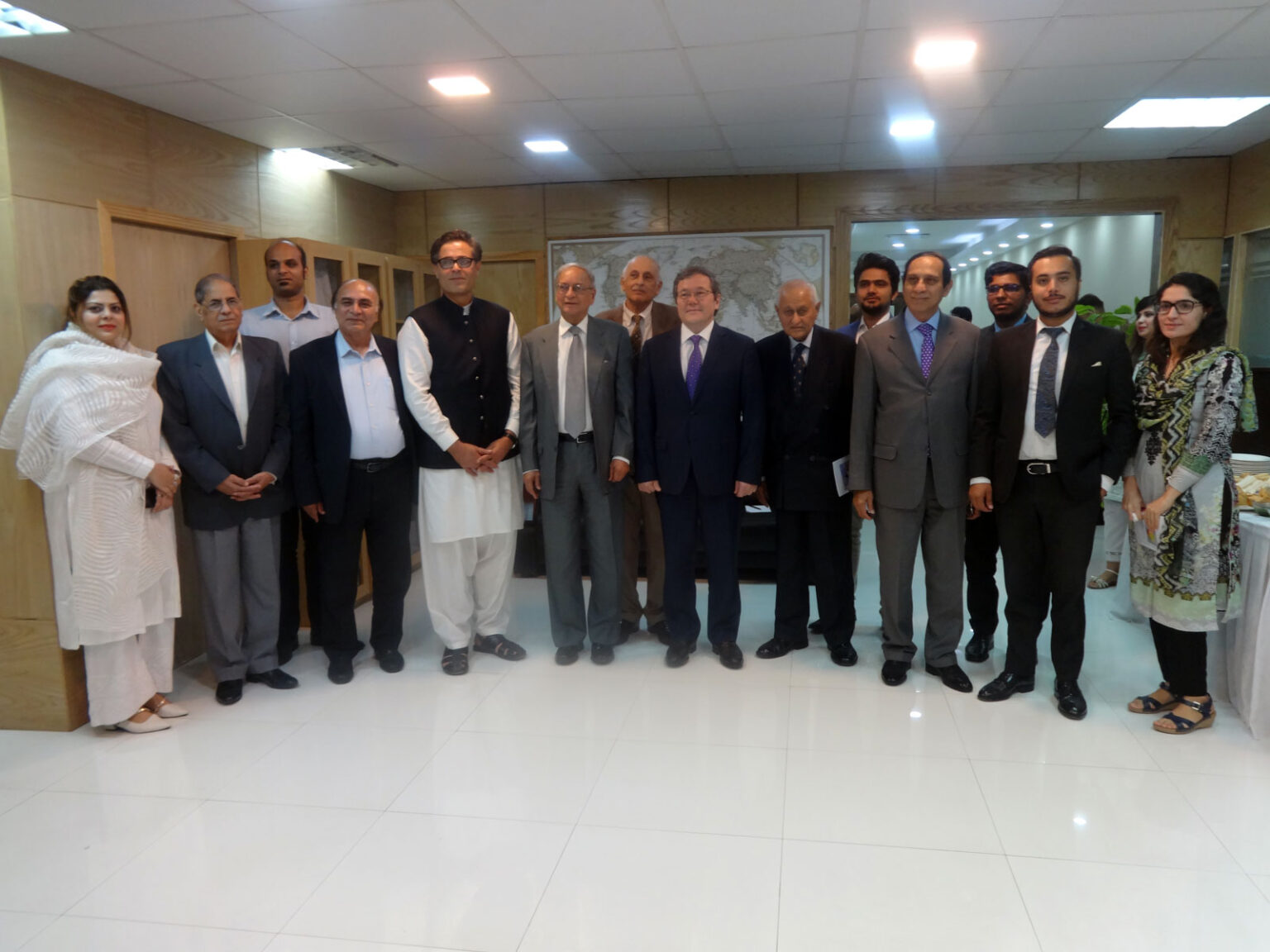A Round Table was held at the Center for International Strategic Studies on ‘Non-proliferation Issues and Peace Initiatives of Kazakhstan’ on Friday. The Ambassador of Kazakhstan, Mr. Barlybay Sadykov spoke on the occasion about the Kazakh experience of disarmament after the disintegration of Soviet Union.
In his welcome remarks, Ambassador (R) Ali Sarwar Naqvi highlighted Pakistan’s non-proliferation and disarmament commitments. Speaking about Pakistan’s efforts during the drafting of the Non-Proliferation Treaty (NPT) in the 50’s, and later the drafting of the Comprehensive Test Ban Treaty (CTBT0, he noted that Pakistan had also made efforts for Negative Security Assurances for non-nuclear states and have South Asia declared as a nuclear weapons free zone in the years before the nuclearization of South Asia. The Indian nuclear tests in May 1998 changed the security environment of the region qualitatively, and Pakistan no longer can support such ideas. However, Pakistan maintains a clear position in support of global nuclear disarmament. Highlighting Pakistan’s achievements in the peaceful uses of nuclear energy, he stated that Pakistan was one of the first countries that benefited from the Atoms for Peace program and has developed, over the years, an extensive peaceful program in power generation, agriculture and medicine.
Ambassador of Kazakhstan to Pakistan, Mr. Barlybay Sadykov, underlined the initiatives of the President of Kazakhstan Mr. Nursultan Nazarbayev who oversaw the denuclearization of his country post-Soviet disintegration. The ambassador reiterated the President’s continued commitment to non-proliferation and disarmament and his mission to put an end to global nuclear tests. He gave an account of how Kazakhstan dismantled its nuclear warheads, delivery systems, test-sites and silos as a part of its foreign policy which laid the foundation of establishing a nuclear weapon free zone in Central Asia. The ambassador mentioned that the President firmly believes in the process of confidence building measures in prevention of war, which were announced by him in the Manifesto “The World 2Ist century “
It was pointed out that by the initiative of Kazakhstan in 2009 the UN announced the closing date of the Semipalatinsk test site – August 29 as an International Day of actions against nuclear tests.
The ambassador talked about Kazakhstan’s Low Enrichment Fuel Bank for peaceful purposes as an effort of President Nursultan Nazarbayev and the formation of Conference on Interaction and Confidence-Building Measures in Asia (CICA) which was also his initiative.
Mr. Khalil Hashmi, Director General UN MOFA, gave a comprehensive overview of peace initiatives by Kazakhstan and how it once had the second most tested nuclear sites in USSR. He mentioned that Kazakhstan had voluntarily given up the possession of nuclear warheads and had simultaneously joined NPT as a non-nuclear weapons state. Comparing Pakistan and Kazakhstan, he noted that while Pakistan had sent many proposals to India to declare South Asia a nuclear weapons free zone in the period before the nuclearization of South Asia, however a positive response was not received from the latter. He also cited the existence of territorial disputes, historical perspectives in South Asia, as well as lack of security assurances as some of the reasons that prevent Pakistan from giving up its nuclear weapons program.
An interactive discussion followed the Ambassador’s speech and the participants asked a number of relevant questions.
Photo Gallery
Ali Sarwar Naqvi is Executive Director at the Center for International Strategic Studies (CISS), Islamabad.

